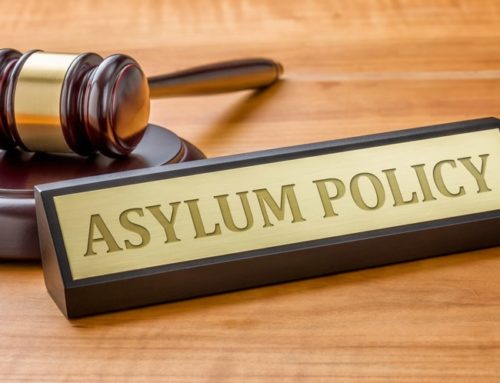Asylum from Uzbekistan
I.S. Law Firm has secured asylum for a young Muslim systematically persecuted by the Uzbekistani government based on his religious beliefs and activities. The challenge was to prove to the United States Citizenship and Immigration Services (USCIS) that the government in a predominantly Muslim country brutally persecutes Muslim individuals and groups based on their Muslim practices.
In order to be granted asylum, the applicant must prove that he/she qualifies as a refugee. According to the official definition, a refugee is a person who, “owing to a well founded fear of being persecuted for reasons of race, religion, nationality, membership of a particular social group or political opinion, is outside the country of his/her nationality and is unable or, owing to such fear, is unwilling to avail himself/herself of the protection of that country; or who not having a nationality and being outside the country of his/her former habitual residence…., is unable or, owing to such fear, is unwilling to return to it”.
“Well founded fear” is defined through a reasonable possibility of persecution. The test consists of two parts: (1) Objective. The applicant must show that the fear is objectively reasonable, i.e. there is at least some possibility that the applicant will be persecuted if he/she returns to the country of origin. (2) Subjective. The applicant must show that his/her fear is genuine, i.e. she is a target of persecution.
There is no universally accepted definition of “persecution”, but Board of Immigration Appeals defines persecution as “infliction of harm or suffering by a government or persons a government is unwilling or unable to control, to overcome a characteristic of the victim. Examples include genocide; slavery; torture; cruel or degrading, inhuman treatment; threats of life; arbitrary arrest or detention; inability to earn a livelihood; inability to travel safely within a country; arbitrary interference with a person’s privacy; serious restrictions on access to normally available education; passport denial; constant surveillance; pressure to become an informed; confiscation of property.
Past persecution provides presumption of well founded fear. To show past persecution the applicant must prove that an incident: (1) Raises to the level of persecution; (2) Is on account of one of the five enumerated grounds (race, religion, nationality, membership in a particular social group or political opinion); (3) Is committed by the government or forces the government is unable or unwilling to control. Absence of past persecution is not a bar to asylum. The applicant may also qualify for asylum by showing a reasonable possibility of future persecution only.
In order to obtain approval of our clients’ asylum petitions, attorneys at I.S. Law Firm gather subjective and objective evidence, country reports, complete the forms, write memorandums, thoroughly prepare the applicant for the questioning and stand by the applicant’s side supporting him/her throughout the entire process. We are proud of our success rates in asylum cases, both affirmative asylum cases through the U.S. Citizenship and Immigration Services (USCIS) and defensive asylum cases through the immigration courts.
PLEASE NOTE THAT CASE RESULTS DEPEND UPON A VARIETY OF FACTORS UNIQUE TO EACH CASE. CASE RESULTS DESCRIBED BELOW DO NOT GUARANTEE OR PREDICT A SIMILAR RESULT IN ANY FUTURE CASE UNDERTAKEN BY I.S. LAW FIRM, PLLC.
If you think you may qualify for asylum, please contact us: +1-703-527-1779 or via e-mail: [email protected].






